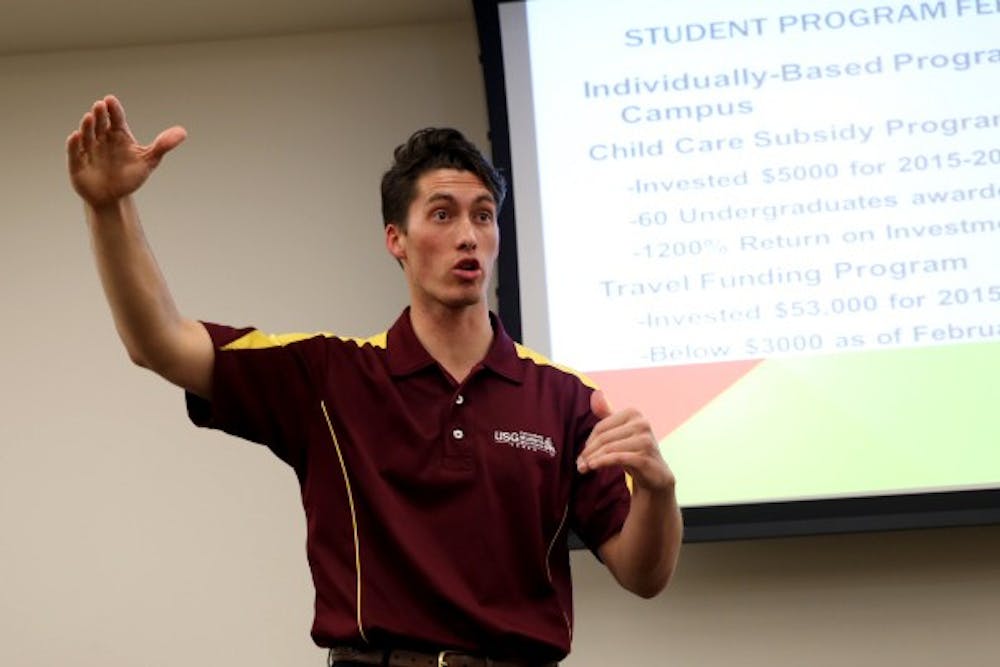Tempe Undergraduate Student Government President Isaac Miller presented and heard feedback on two student fees to a group of students and faculty in an open forum on the Tempe campus Tuesday.
The meeting was the most recent of USG's attempts to gather student feedback about the student programming and student athletic fees.
Pending Tempe USG approval, the student programming fee would increase from $25 to $30, while the student athletic fee sits at $75.
Miller introduced each fee and its potential benefits before entertaining questions and comments from the assemblage of students.
Miller emphasized that, though he supports the fees, Tempe USG is receptive to student feedback and would not be forcing an undesired fee increase.
He discussed a potential increase in the student programming fee, on which Tempe USG will vote March 1.
"I'm sincerely in a place right now where I think an increase in the fee is our best option," Miller said. "But I'm not interested in forcing it on the student body."
He frequently addressed concerns that Tempe USG was not truly interested in student feedback.
"If the decision was already made, if I wanted to do this with no constituent feedback whatsoever, I wouldn't be here," he said.
The benefits of an increase in the programming fee, which would net an extra $600,000 university wide, include more money for the Programming Activities Board, sports clubs, student travel funding, club appropriations and the childcare subsidy program, Miller said.
The audience voiced concerns about the receptiveness of Tempe USG to feedback and the general principle of increasing funding by increasing cost, instead of freeing funds by reducing inefficiencies and redundancies.
"We are having these conversations (about redundancies), but if we were to eliminate every single item we pay that we find inefficient, we may be wrong," Miller said in response.
Miller found support in the form of other Tempe USG representatives as well as members of other organizations on campus, including incoming PAB President Riggs Brown.
"Raising this by just $5 will significantly increase the student experience at ASU," he said.
Kanin Pruter, a senator from the College of Liberal Arts and Sciences and the Government Operations chair, also voiced his support of the increased fee.
"The benefits it will yield are a lot," he said.
Meanwhile, the benefits of the athletics fee include providing pay increases for instructional assistants and community assistants, test preparations for graduate students, increased shuttle services, student tickets to sporting events, reservations of seats for the student section and increased investment in financial aid, Miller said.
The audience expressed its worries about the efficacy of the shuttle system, despite paying fees to support it.
"If we're paying for this stuff, and if we're paying to depend on it, and I have to take an earlier (shuttle) just to get to class on time, it's frustrating," said Paula Ngon, a CLAS senator on the finance committee.
Reach the reporter at Arren.Kimbel-Sannit@asu.edu or follow @akimbelsannit on Twitter.
Like The State Press on Facebook and follow @statepress on Twitter.




